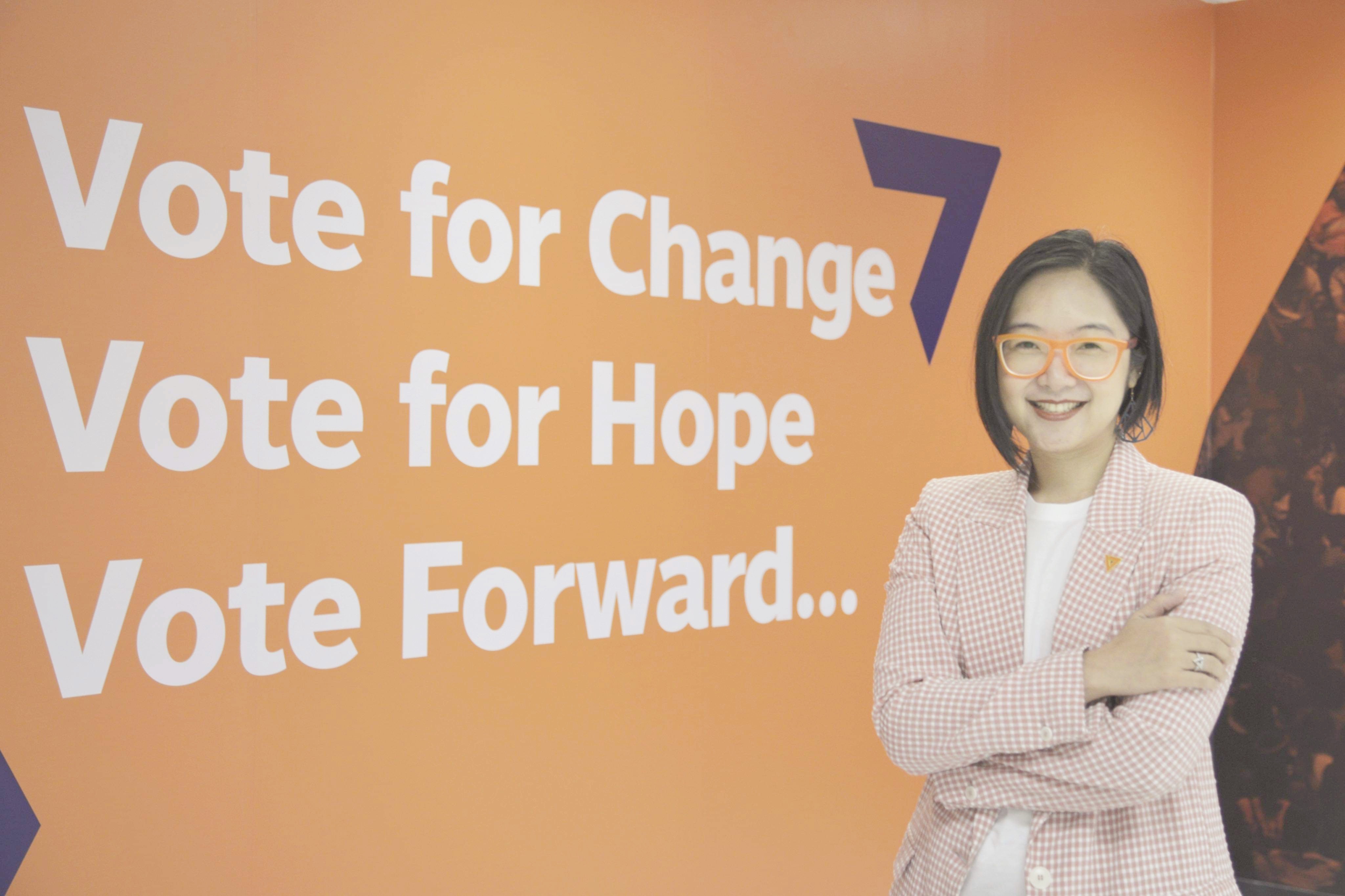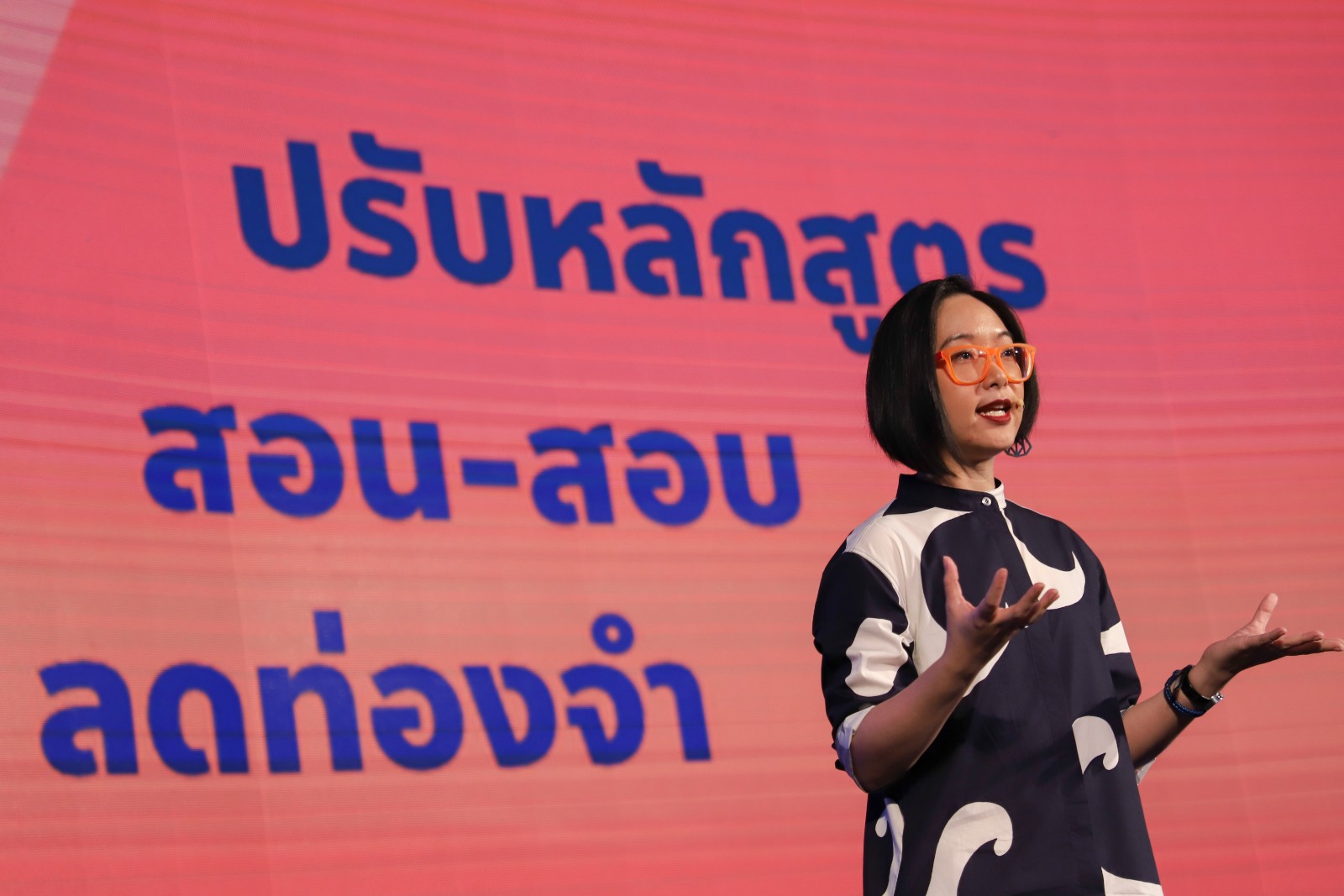
Finnish-educated Thai scholar-turned-politician Kunthida Rungruengkiat sets her eyes on the horizon to benefit Thai teachers and students
It has been almost 20 years since Kunthida Rungruengkiat, deputy leader of Future Forward Party (FFP), had her first educational experience in Finland as an exchange student. At the time she was just 16 years old. “The days in Finland were the days I got a chance to “bloom my things”,” says Kunthida. What she means is, it is the monumental period in her life that she had the chance to explore and express herself – a defining moment that led her into a role in politics later in life. Kunthida’s political collective, FFP, played a significant role as the second runner-up in the Thailand’s general election 2019 and also as a new hope for Thailand especially for the young generation.
Our last conversation with Ida, Kunthida’s nickname among Scandinavian peers, we learn that the 34-year-old Bangkokian earned a Bachelor of Arts from Chulalongkorn University before being offered a Scholarship for International Degree Students in 2008-09 at the University of Jyväskylä, Finland, where she earned her Master of Arts in Intercultural Communication.
After graduation, Ida came back to Thailand and secured a tenure as professor of Intercultural Communication Strategy at Bangkok University (International and Thai Programme). Her new role as politician emerges when she joined FFP as deputy leader in the event of Thailand’s probably most sensational election.
“My voice was heard in Finland and it changed me tremendously.”
Ida tells us that the time in Finland was crucial in shaping her personality and mindset, thanks to the Finn’s idea of equality and mutual respect regardless of age or status.
“Ida, do you want to do this or not?” was the most commonly heard sentence for Ida when she was a student in Finland. “I was asked all the time if I wanted to do something, even with something that was very compulsory like learning Finnish language. My Finnish mom would always ask me and gave me options to accept or decline, which I find very respectful,” she says.
Unlike in Thailand, where hierarchy and tradition give certain groups of people more voices than others, Ida, like many Thais growing up in traditional household, finds that Thai teenagers are obligated to obey their parents. And if they do not, they would be branded “ungrateful children”.
“In Thailand, my voice was not heard that much. My family would say do this, do that, study this. I knew they meant well but sometimes I would like to say no but still in Thai culture you have to be obedient to the parents,” Ida says.
Being heard in Finland was very important to Ida not only because she had a chance to express herself but she was also respected. She knew that she was listened to and not taken for granted. “My host mom respected me and treated me as a grown-up and that shaped and changed me tremendously. It changed the way I looked at so many things especially with education.”

“Everyone has a way to succeed and rise to same high standard”
Growing up in Thailand and spending some time in Finland, Ida learned of one defining difference between Finnish and Thai education systems. While Finnish schools embrace and nurture students of every background and level, the Thai counterparts only shed lights on the bright and the smartest kids, leaving the rest behind to struggle.
“What Finland has is a good balance between trying to make sure that everyone has a way to succeed and maintaining the potential of those who already have a lot of capacities. Those who have a lot of capacities and those who need a lot of help got a different kind of help so that together they can rise to the same high standard. Everyone has equal chance to prosper in life,” Ida shares.
“Thailand repeats the unfunctional cycle over and over again.”
According to Ida, it is not because Thai education system is in efficient or neglected by the government, but there are too many policies to accomplish. And to make matters worse, these policies are too short-lived to yield expected results.
“Minister of Education is regulated to stay in office for only 11 months,” Ida explains. “So, every 11 months, a new minister comes in and introduces new policies and at the same time abandons previous ones. Somewhere mid-action, we stop carrying on a policy to adopt new one. It’s not a sustainable way to develop anything or solve any problems, because nothing is long term. It’s an unfunctional cycle over and over again.”
As the policies are passed down from the authority, schools and teachers are obliged to follow. “This causes huge confusion among educators, teachers, parents and also the students. That’s why the Thai education system is at a standstill.”
“I now want to give back to society”
Ida’s decision to jump into politics comes from the strong will to elevate Thai education system.
“When I decided that I want to do a Master’s in Finland, my family was hit with financial crisis,” Ida recalls. “I almost abandoned my wish, but my host mom in Finland offered to help. She said no tuition fee was needed in Finnish universities and that she was willing to support me while I study there. That’s why I decided to go.
“Having an opportunity to get access to quality education makes me realize that good education is super important. It can change not just a person but also the society. So, when I received that opportunity to live in Finland that has been giving me so much, I now want to give back to my own country to assure that others could have the same kind of opportunity as well,” says Ida.

“People should feel confidence that they can do better for the country”
Ida’s party praises her as “a living source for education policy directions for the Future Forward party.” And as an educational advocate, she constantly promotes the Finnish educational approach in Thailand. The party aims to enhance the equal access to quality education and support all students equally, the way Finland has set an example.
With her role in politics, Ida aspires to create an environment where teachers and students thrive together, something she says is never before seen in Thai education system. “Instead of focusing on teaching, nurturing the students’ skills and helping them learn, teachers are overwhelmed by paper work that they are required to submit.
“Teachers in Thailand are controlled and supervised by such strict protocol that they become stifle and hence cannot become creative. I want to lessen the paperwork load so that teachers can have more time and impose less protocol so that they feel trusted. When people feel that they are trusted and respected, they will have the confidence to do better for the country. In this case, teachers can be more creative with their teaching. For me, I think education is the most creative industry.” Ida says. “You’re not just teaching; you’re preparing them for the future. You have to be that creative force to provide the student all kinds of skills and mindsets to thrive in the future, no matter how the world has become,” says Ida.

